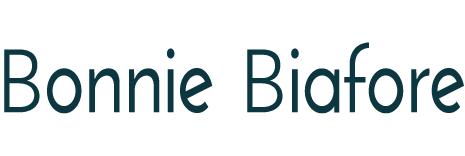Focus on What’s Important
 One of Stephen Covey’s 7 Habits of Highly-Successful People is to put first things first – that is – put your time and energy into what’s important and say no to what isn’t. Let’s look at common project manager habits that you might want to break in order to have time to focus on what’s truly important in your projects.
One of Stephen Covey’s 7 Habits of Highly-Successful People is to put first things first – that is – put your time and energy into what’s important and say no to what isn’t. Let’s look at common project manager habits that you might want to break in order to have time to focus on what’s truly important in your projects.
-
Attending repeat meetings routinely. Meetings are often pre-scheduled every one or two weeks. It’s a handy way to carve out time to keep stakeholders up to date. What if there’s no significant project news or risks to talk about? There’s no need for a meeting! New habit: Work with your team to determine whether a meeting is necessary. Then, skip or cancel it if there isn’t anything relevant to cover.
-
Answering emails in order of receipt. Many project managers answer emails in the order they were received to reply in a timely fashion. Timely communication is important, but not every email requires an immediate response. New habit: Set specific times in your day to respond to emails. Review all new emails and prioritize responding to them based on their urgency and importance. (Give people another communication method for emergencies.)
-
Getting administrative tasks out of the way. Everyone has administrative tasks to do and seeing them on our desks can be annoying. (This is so me!) Many people will finish these low-priority tasks up front, so they aren’t nagged by the piles of paperwork. Most of the time, you can postpone these activities until things calm down. New habit: Set aside time in your schedule when it’s usually quiet to handle your admin tasks.
-
Worrying about non-critical-path tasks. Keeping the project schedule on track is important. But you don’t have to scrutinize every task in your project. Don’t get distracted by issues with tasks that aren’t on the critical path. Instead, focus on critical tasks – the ones that affect your project timeline. New habit: Focus on critical path tasks and tasks with very little slack. Leave the management of other tasks to your team members.
-
Wasting time on time-consuming reporting processes. Reporting is important — and time-consuming. You can streamline reporting, but that usually takes time. So what? Take the time to automate or delegate reporting. You’ll recoup it many times over during your project management career. New habit: Spend time up front to streamline reporting. Consider restructuring your project reports to make them easier to create.
-
Wasting time on any process. Just like reporting, there are lots of project management activities that are important, but chew through your workday. Think about ways to perform these tasks more efficiently. Prioritize them by how much time you can save. Then, spend some time each week making your efforts more productive: build templates, implement new tools, harness AI, and so on. New habit: Set aside some time each week to work on ways to make your work more productive.
- Interrupting your focus by answering the phone. Phone calls interrupt your work and distract you. But they aren’t necessarily important or urgent. Don’t answer the phone unless you know it’s important. New habit: Don’t answer the phone unless you’re expecting the call. Set up a communication method (I recommend texting) for immediate and important communication. Commit to answering other forms of communication within a specific timeframe, such as 24 or 48 hours.
Do you have habits that you know aren’t effective? Do you have ideas for how to focus on what’s important? What is the one thing you could do differently that would help you focus on what’s truly important? Share with us in the comments section.
For more about being effective, check out Dave Crenshaw’s Time Management Fundamentals course. Or look at Chris Croft’s Five Ways to Control Your Time course.
Coming Up
Marlene Chism is an expert in conflict, anger management, working with difficult people, and having difficult conversations – things most of us want to avoid. Despite the tough topics, she’s a truly lovely person. In this LinkedIn Learning Office Hours, we’re going to dig into some of the concepts she teaches for dealing with conflict. We’ll spend the rest of the session providing practical advice for dealing with conflict and other difficult situations. Bring your questions about the conflict you need help with, and we’ll provide advice for as many as we can fit in!I hope you will join us on Wednesday, January 17, 2024, 11am MT, 1 PM ET for this no-nonsense, advice-packed session on dealing with conflict with composure.
_______________________________________
This article belongs to the Bonnie’s Project Pointers newsletter series, which has more than 57,000 subscribers. This newsletter is 100% written by a human (no aliens or AIs involved). If you like this article, you can subscribe to receive notifications when a new article posts.
Want to learn more about the topics I talk about in these newsletters? Watch my courses in the LinkedIn Learning Library and tune into my LinkedIn Office Hours live broadcasts.
_______________________________________
